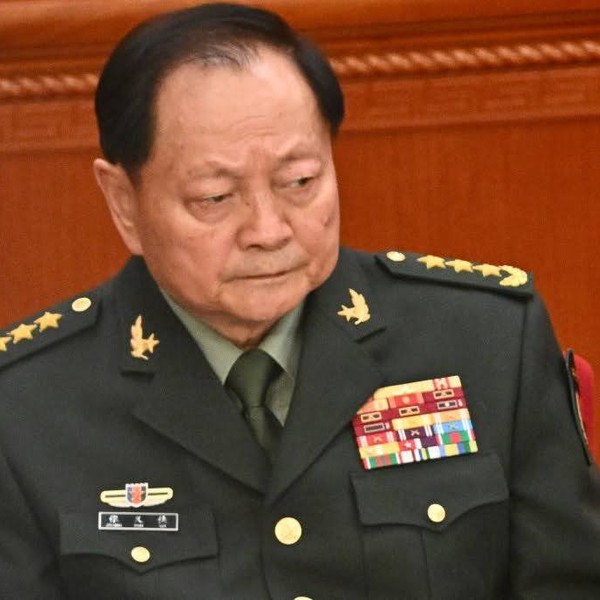OPINION — The newly elected President of the Maldives, Mohamed Muizzu, recently gave India until March 15th to remove its 80 troops from the islands. China has been courting Muizzu assiduously and recently accorded him a State Visit to Beijing. Chinese President Xi Jinping clearly sees an opportunity to rile India in its own back yard and maybe even establish its own military and naval foothold.
The politics of the Maldives are not particularly intense. The islanders are overwhelmingly Muslim and not remotely militant but, if asked, would tend to dislike Indian Prime Minister Narendra Modi’s brand of Hindu nationalism.
Pakistan quite enjoys stirring such sentiments but without much harmful effect. Muizzu would be wise not to take any more calls from Pakistan’s leaders who are in no position to help and whose interventions infuriate New Delhi.
The bigger issue is climate change.
As the lowest lying country in the world, there is intense concern about sea levels. There is a need for large-scale environmental spending to stave off the consequences and China is an available source of finance. However, the Maldives already owe China considerable amounts of debt, much of it amassed since the decision to join the Belt and Road Initiative (BRI) in 2014.
It's not just for the President anymore. Are you getting your daily national security briefing? Subscriber+Members have exclusive access to the Open Source Collection Daily Brief, keeping you up to date on global events impacting national security. It pays to be a Subscriber+Member.
The Maldives are usually thought of as a holiday paradise and not as somewhere of political and diplomatic significance. So why do the Maldives matter to China and India?
Not so long ago, the British regarded the islands as a strategic asset. During the first part of the Second World War, the British Eastern Fleet was based at Trincomalee in Ceylon (now Sri Lanka) the largest and deepest harbour on the Indian Subcontinent. On April 9, 1942, Trinco (as it was known) was bombed by the Japanese. The British were forewarned and had dispersed much of the fleet. However, the aircraft carrier HMS Hermes was sunk and it became increasingly clear that the harbour was no longer safe.
The decision was taken to relocate the Eastern Fleet to Addu Atoll in the Maldives. This became known as Port T.
It had rudimentary facilities but provided a good anchorage for a large fleet. In due course, an airstrip was built and became known as RAF Gan. It was a key staging post between Singapore and the Persian Gulf. Landing there in a Comet aircraft of RAF Transport Command was an extraordinary experience as the airstrip was almost invisible in the vast turquoise ocean until the very last moment. The runway was the whole length of the coral reef.
The Maldives gained their independence from Britain in 1965, and the RAF finally departed in 1976. That Addu Atoll - once a strategic asset - is now a mere memory along with the tumbleweed. What was RAF Gan is now a minor regional airport.
However, in the new rivalry between the two emerging Asian powers, the Maldives could start to matter again.
India has made some recent progress in gaining access to Trincomalee but Sri Lanka is still caught in the Chinese debt-trap which led to the 99-year lease of Hambantota to Beijing. A debt restructuring deal was concluded in 2023 which will tie Sri Lanka to China for the foreseeable future.
If China were able to secure access to the Maldives it would be deeply uncomfortable for India and could, at times of tension, prove to be a major strategic headache given the importance of sea-routes across the Indian Ocean for both nations.
Subscriber+Members have a higher level of access to Cipher Brief Expert Perspectives and get exclusive access to The Dead Drop, the best national security gossip publication, if we do say so ourselves. Find out what you’re missing. Upgrade your access to Subscriber+ now.
So, what can New Delhi do? Firstly, it should not be in this position in the first place. The Maldives are dependent on India for basic foodstuffs and services. It has been a major failure of diplomacy to allow China to establish such a strong economic and diplomatic foothold over such a long period without developing a coherent counteroffer.
This is rather emblematic of India’s traditional problem with most of its neighbours who regard New Delhi (and the Ministry of External Affairs in particular) as didactic and intransigent.
Pakistan is a special case, but Nepal, Bhutan, Bangladesh, Myanmar, and Sri Lanka have all found India a difficult neighbour. By contrast, China operates with silky diplomatic skill until it has achieved its objectives when the silkiness is replaced by harsh realpolitik.
Ajit Doval, India’s National Security Advisor, will at least discuss annexation as one of the few options available, if only to reject it.
Given the Maldives location annexation would be easy. It might even play well during Modi’s 2024 election campaign. However, it would be crass and would play badly to India’s image overseas and provide China with yet more excuses for its own colonisation of islands in the South and East China Seas.
What national security news are you missing today? Get full access to your own national security daily brief by upgrading to Subscriber+Member status.
It would be reassuring to think that Washington also has the Maldives on its radar, but the probability is that the State Department and Pentagon are overloaded with more urgent requirements in Ukraine, the Middle East and Taiwan. The loss of the Maldives to China could, however, be one of those small issues which take on much larger significance post-facto. It should not be allowed to happen.
The solution must be to engage with Muizzu and to negotiate for the 80 Indian soldiers to remain (and be gradually reinforced). The Maldives would find life very hard indeed without its supplies from India and it will be a test of the MEA’s diplomatic skills to see if this leverage can be exercised in a manner which is non-threatening. It probably calls for a ‘whole of government’ approach to include collaboration in education, healthcare, and the wider economy.
The report of the meeting between both parties on February 3, suggests that this is a long way from being achieved. The two accounts of the meeting revealed some remarkable differences in interpretation. India said troop withdrawal was not mentioned. The Maldives insisted the deadline has just been moved back to May 10.
The Cipher Brief is committed to publishing a range of perspectives on national security issues submitted by deeply experienced national security professionals.
Opinions expressed are those of the author and do not represent the views or opinions of The Cipher Brief.
Have a perspective to share based on your experience in the national security field?
Send it to Editor@thecipherbrief.com for publication consideration.
Read more expert-driven national security insights, perspective and analysis in The Cipher Brief















